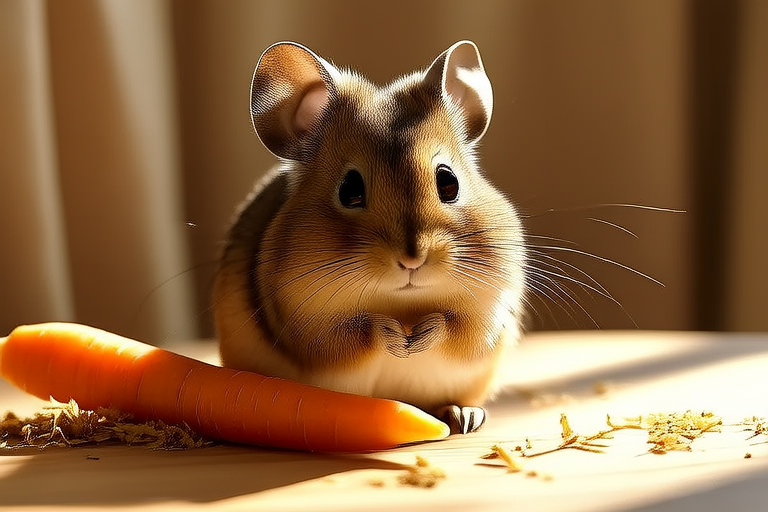Adorable Chinchillas: Unraveling Myths and Realities of Their Unique Needs
Chinchillas, with their soft, luxurious fur and large, expressive eyes, have captured the hearts of many animal enthusiasts. These small rodents, native to the Andes Mountains in South America, are increasingly becoming popular pets. However, owning a chinchilla comes with unique responsibilities that require careful consideration. This article aims to unravel common myths about chinchillas and provide accurate information regarding their dietary requirements, habitat needs, grooming practices, social behaviors, and health concerns.
Common Myths About Chinchillas
Before delving into the realities of chinchilla care, it’s essential to address some prevalent misconceptions:
- Myth: Chinchillas Are Easy Pets for Beginners
While chinchillas may appear cute and cuddly, they are not suitable for first-time pet owners. They have specific dietary, environmental, and social needs that require a dedicated owner. Their sensitivity to heat and humidity makes them unsuitable for tropical climates, and their delicate digestive systems need specialized care.
- Myth: Chinchillas Can Be Handled Freely
Chinchillas are skittish creatures by nature. Handling them too much or too roughly can cause stress and anxiety. It’s best to allow them time to acclimate to their environment before attempting to handle them. When handling is necessary, always support their entire body to prevent injury.
- Myth: Chinchillas Don’t Require Grooming
This couldn’t be further from the truth. Chinchillas have incredibly dense fur that can easily become matted if not properly maintained. They also produce less dander than other animals, making them a good choice for people with allergies. Regular dust baths are crucial for maintaining their coat’s health and preventing skin issues.
Dietary Requirements
Chinchillas are herbivores with a diet primarily consisting of hay, pellets, and fresh water. Timothy hay is the most recommended type of hay as it aids digestion and supports dental health. Pellets designed specifically for chinchillas should be provided in limited quantities to avoid overfeeding.
Vegetables such as carrots, broccoli, and bell peppers can be offered sparingly as treats but should never replace the primary diet. Avoid feeding chinchillas fruits, as their high sugar content can lead to obesity and dental problems. Fresh water should always be available in a sipper bottle.
Habitat Needs
A proper habitat is crucial for a chinchilla’s well-being. The cage should be spacious enough to allow for movement and exercise. Multi-level cages with platforms and tunnels are ideal, providing ample space for climbing and exploration.
The bedding material should be absorbent and dust-free. Aspen shavings are commonly used but avoid cedar and pine shavings, which can be harmful. Temperature and humidity levels must be strictly controlled. Chinchillas thrive in cool environments between 64°F and 70°F (18°C and 21°C). High humidity levels can lead to respiratory issues, so it’s important to maintain a relative humidity level below 50%.
Grooming Practices
Regular grooming is essential for keeping chinchillas healthy and happy. Dust baths are the primary method of grooming. Provide a shallow container filled with commercial chinchilla dust once or twice a week for approximately 15 minutes. This helps remove oils and dirt from their fur without causing matting.
In addition to dust baths, occasional brushing can help remove loose fur and prevent matting. Use a soft-bristled brush gently to avoid damaging the fur. Nail trimming may be necessary every few months, especially if the chinchilla spends little time on abrasive surfaces.
Social Behaviors
Chinchillas are social animals that enjoy the company of others. In the wild, they live in colonies of up to 100 individuals. As pets, they can bond closely with their human companions but may prefer the company of another chinchilla. Introducing a second chinchilla can reduce loneliness and promote mental stimulation.
Chinchillas communicate through vocalizations and body language. A happy chinchilla may purr or chirp, while a stressed one might squeal or bite. Understanding these signals can help owners provide appropriate care and attention.
Health Concerns
Chinchillas are generally hardy animals, but they are prone to certain health issues if not cared for properly. Dental problems, including overgrown teeth, are common due to their constantly growing incisors. Providing plenty of hay and chew toys can help keep their teeth at a healthy length.
Respiratory infections can occur if the environment is too humid or dirty. Keeping the cage clean and monitoring temperature and humidity levels can prevent these issues. Regular veterinary check-ups are essential for early detection and treatment of any health problems.
Engaging Facts About Chinchillas
Chinchillas are fascinating creatures with several unique traits:
- They have around 60 hairs per follicle, making their fur one of the densest in the animal kingdom.
- Chinchillas are excellent jumpers and can leap up to six feet in a single bound.
- These nocturnal animals are most active during the evening and night, spending their days resting in cozy nests.
- Chinchillas are known for their playful behavior, often engaging in activities like rolling and wrestling.
Owning a chinchilla can be a rewarding experience for those willing to meet their unique needs. By understanding their dietary requirements, habitat needs, grooming practices, social behaviors, and health concerns, potential owners can provide the best possible care for these adorable creatures.
Remember, adopting a chinchilla is a long-term commitment. Ensure you’re prepared to dedicate the time and resources necessary to keep your chinchilla healthy and happy. With proper care, chinchillas can live up to 20 years, offering years of companionship and joy.
